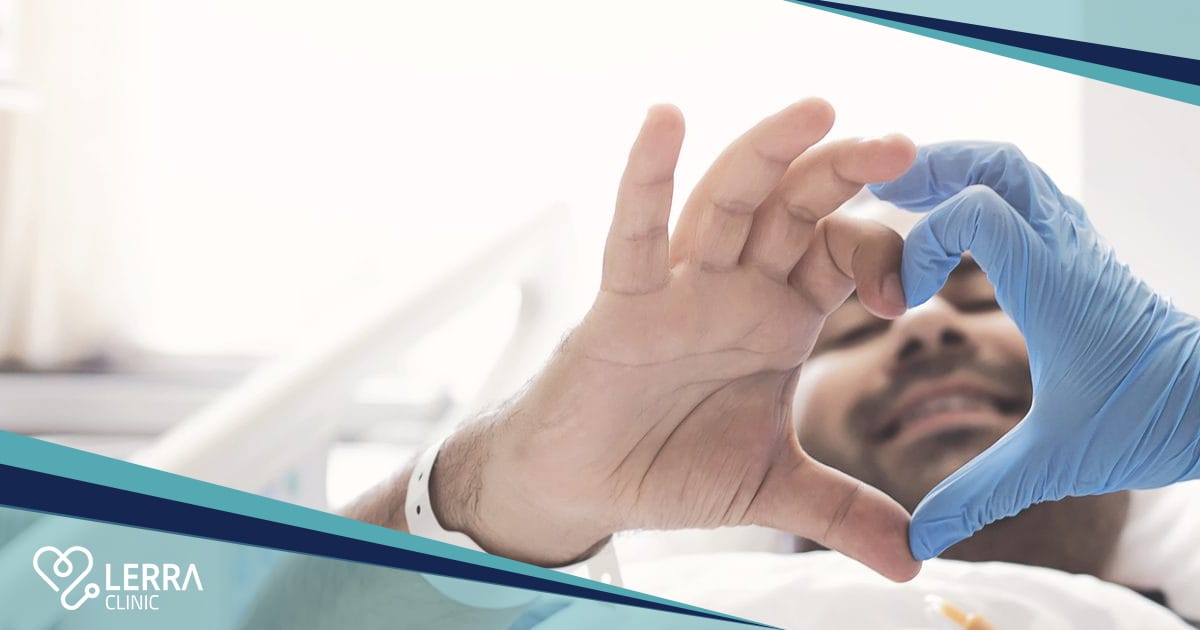How can you recover quickly and achieve the best results after a procedure? This guide on post procedure care tips for optimal recovery and results offers practical advice to help you heal effectively and ensure a smooth recovery. From managing pain to proper wound care, follow these tips to optimize your recovery journey.
Table of Contents
Key Takeaways
- Adherence to post-operative instructions from your surgeon is essential for optimal recovery, including following medication schedules and wound care protocols.
- Effective pain management and proper nutrition, including hydration and a balanced diet, significantly contribute to healing and recovery after surgery.
- Consistent use of compression garments, monitoring of incision care, and attending follow-up appointments are crucial components of the recovery process.
Follow Your Surgeon’s Instructions

The cornerstone of a successful recovery after any surgical procedure is adhering to your surgeon’s instructions. These guidelines are not arbitrary; they are tailored to ensure you heal properly and minimize the risk of complications. Trust in the expertise of your plastic surgery surgeons, as they have crafted these post-operative care instructions based on your specific procedure and individual health needs.
One of the primary aspects of post-operative care is taking prescribed medications as directed. Pain relievers and antibiotics are commonly prescribed to aid recovery and prevent infections. It is crucial to follow the schedule for these medications meticulously to ensure proper healing and comfort. Additionally, specific wound care instructions, such as cleaning the incision sites and keeping them sterile, are imperative to prevent infection and promote optimal healing.
Activity restrictions are another critical component. Your surgeon will advise you on what activities to avoid and for how long. This often includes refraining from strenuous activities, heavy lifting, and even certain exercises that could jeopardize your recovery. Adhering to these post-op instructions sets the stage for a smooth and effective healing process.
Manage Pain Effectively
Pain management plays a vital role in the healing process, addressing pain not just for comfort but to promote proper healing. Pain is typically most intense within the first two to four days post-surgery, gradually decreasing over time. Adhering to the prescribed pain medication schedule can significantly assist in managing pain.
Cold compresses or ice packs applied at intervals can also be very effective in reducing swelling and discomfort. Over-the-counter pain relievers like Advil and Tylenol can be used, but it’s vital to avoid NSAIDs such as ibuprofen immediately before and after liposuction surgery due to increased risks of bruising and drainage. If the pain feels excessive or unusual, contact your surgeon before your next follow-up appointment.
Staggering doses of different pain relievers can effectively manage pain and prevent any breakthrough discomfort, especially when there is too much pain. Remember, managing pain effectively is not just about comfort; it’s about ensuring your body is in the best possible state for healing. Follow the directions for prescription pain medication closely to avoid any complications.
Stay Hydrated and Eat a Balanced Diet
Hydration and a balanced diet play a pivotal role in your liposuction recovery process. Hydration, particularly after procedures like liposuction, maintains fluid balance and aids in nutrient absorption, crucial for tissue repair. Drinking plenty of water and consuming water-rich foods like fruits and vegetables can help keep your body well-hydrated.

A balanced diet rich in proteins, vitamins, and minerals is fundamental for recovery. Proteins are especially important for tissue repair and healing. Incorporating fruits, vegetables, lean meats, and whole grains will provide your body with the nutrients it needs to heal properly. Avoiding high-calorie, sugary foods, and processed options is also crucial, as they can hinder the recovery process.
Signs of dehydration, such as fatigue, dizziness, and dark urine, should be monitored closely. Maintaining a healthy diet and staying hydrated will not only support your recovery but also lay the foundation for long-term health and well-being. Remember, your body needs all the support it can get to heal properly, and proper nutrition is a significant part of that support.
Wear Compression Garments Consistently
Compression garments are an essential part of the post-surgery recovery process, particularly after procedures like liposuction. These garments help manage swelling, provide support to the surgical area, and alleviate discomfort. They are designed to apply consistent pressure to the areas where surgery was performed, aiding in the reduction of swelling and bruising.
Wearing compression garments consistently, as advised by your surgeon, is crucial for optimal recovery. Typically, this means wearing them day and night for one to three weeks post-surgery.
These garments not only help in shaping the body during the healing process but also improve circulation, reducing the risk of blood clots and infections. Properly fitted compression garments should be snug but not restrictive, ensuring comfort and promoting healing.
Monitor Wound Healing and Incision Care
Proper wound healing and incision care are paramount for a smooth recovery. Follow your surgeon’s specific instructions on how to care for your incision sites to ensure optimal healing. This often involves keeping the incision site covered with a sterile bandage and gently cleaning it with soap and water, avoiding any rubbing or disturbance.
Monitoring for signs of infection is crucial. Increased redness, swelling, unusual pain, or drainage from the incision site can be indicators of infection. If you notice spreading redness or excessive swelling, it’s important to contact your healthcare provider immediately. Changing dressings regularly, as instructed by your surgeon, helps in preventing infection and promoting healing.
Ensure that the incision area is dry before reapplying new dressings to avoid excessive moisture, which can delay healing. Avoid soaking the incision sites in baths or hot tubs until they are fully healed to reduce the risk of infection. Proper incision care is a critical component of post-operative care and should not be overlooked.
Avoid Strenuous Activities
Limiting physical activities in the initial days post-surgery is crucial for preventing complications and ensuring a smoother recovery. Avoid heavy lifting and high-impact exercises for several weeks post-surgery. Engaging in strenuous activities too soon can lead to increased pain, swelling, or serious complications like blood clots.
Adhere to your surgeon’s advice on when and how to resume normal activities. This often includes avoiding multiple trips up and down stairs, certain exercises, and lifting objects over 10 pounds shortly after surgery. Limiting physical activities gives your body the time it needs to heal properly and reduces the risk of setbacks in your recovery journey.
Gentle Movement and Light Exercise
While strenuous activities should be avoided, gentle movement and light exercise are encouraged during recovery. Activities such as short walks and gentle stretching can significantly promote healing by improving blood circulation and prevent blood clots. Aim for short walks two to three times a day to support your recovery.
Gradually increasing your activity levels is key to avoiding any complications such as swelling or tissue damage. Gentle movement not only aids in physical recovery but also helps in maintaining mental well-being during the recovery period. Listen to your body and adjust your activity levels accordingly to ensure a smooth and effective healing process.
Sleep and Rest Properly
Adequate sleep and rest are vital for a successful recovery. A recliner or incline pillows can help maintain an optimal sleeping position that supports healing. Avoid sleeping flat on your back to reduce pressure on incisions, which can hinder the healing process.
After abdominal liposuction, sleeping on your back with pillows under your knees is recommended. After facial procedures like a facelift or nose job, keeping your head elevated on pillows can reduce swelling and promote healing. Preparing your home with essentials within reach can also promote comfort and ease during the recovery phase.
Creating a comfortable sleeping environment is also important. Keeping your bedroom cool and comfortable can promote better sleep and overall recovery. Always follow your surgeon’s post-surgery instructions regarding sleep positions and communicate any sleep-related concerns with them. Proper rest is crucial for allowing your body the time it needs to heal properly.
Attend All Follow-Up Appointments
Attending all follow-up appointments is crucial for monitoring recovery progress and addressing any concerns. These appointments allow your surgeon to check on your healing and make any necessary adjustments to your care plan.
Follow-ups usually occur at two weeks and six weeks post-surgery. During these visits, your surgeon can check the healing of your incisions, remove stitches or staples if needed, and provide personalized advice for your continued recovery. Don’t miss these critical appointments, as they are vital for ensuring a smooth and successful recovery.
Refrain from Smoking and Alcohol
Avoiding smoking and alcohol before and after surgery is crucial for optimal healing. Smoking and alcohol can hinder the healing process and increase the risk of serious complications like infections or delayed recovery.
Continuing to abstain from smoking and drinking during the recovery period is essential for ensuring your body heals properly. Staying hydrated and avoiding these substances supports your overall recovery process.
Maintain Emotional Well-being

Emotional well-being is just as important as physical recovery. A strong support network can significantly ease the emotional recovery process after surgery. Support groups offer valuable opportunities for sharing experiences and coping strategies with others who understand your situation.
Therapy can offer a safe space to express your feelings and receive guidance on managing post-surgery emotions. It’s not uncommon to experience emotional fluctuations, such as feelings of excitement and anxiety, as you adjust to your body changes. Practicing mindfulness techniques like meditation or deep breathing can help stabilize emotions and promote a positive recovery experience.
Engaging in positive self-talk and listening to your body by stopping activities that cause discomfort is vital for your recovery. Monitoring your emotional state and seeking support when needed will help you maintain overall health and well-being during the recovery process.
Protect Surgical Sites from Sun Exposure
Protecting your surgical sites from sun exposure is critical to prevent exacerbation of scarring and hyperpigmentation. Protective clothing like wide-brimmed hats and long sleeves, along with high SPF sunscreen, can shield your healing skin from harmful UV rays.
Sunscreen with at least SPF 30 is recommended to protect your incision sites. Covering the surgical area with clothing or sunscreen will help ensure a smoother healing process and reduce the risk of complications related to sun exposure.
Recognize Signs of Complications
Recognizing signs of complications post-surgery is vital for timely intervention. Excessive swelling, unusual pain, or fever can be indicators of complications and should be addressed immediately.
If you notice signs of infection like persistent redness or discharge, or symptoms related to blood clots like excessive bruising or irregular skin contours, contact your surgeon immediately. Always reach out for professional advice if you notice any unusual symptoms and, if necessary, visit your primary care provider or emergency room.
Summary
In summary, following your surgeon’s instructions, managing pain effectively, staying hydrated, and eating a balanced diet are all crucial for optimal recovery. Wearing compression garments, monitoring wound healing, avoiding strenuous activities, and engaging in gentle movement will further support your healing process.
Protecting your surgical sites from sun exposure, attending follow-up appointments, and maintaining emotional well-being are also essential for a successful recovery. By adhering to these comprehensive post-surgery care tips, you can ensure a smoother and more effective healing journey. Remember, your recovery is a journey, and taking these steps will help you achieve the best possible outcomes.
Contact us today and get the best offer!
Read Also:
Essential Tips on How to Prepare for Your First Aesthetic Consultation
Scar Revision Surgery: What It Is and How It Can Benefit You
Top Cutting Edge Hair Transplant Techniques for Optimal Results
Frequently Asked Questions
What are the three steps in post-operative care of a patient?
Post-operative care can be categorized into three key phases: the immediate phase following anesthesia, the intermediate phase during hospitalization, and the convalescent phase of recovery. Each phase is essential for ensuring a patient’s safe and effective recovery.
What are the enhanced recovery principles for recovery after surgery?
The enhanced recovery principles for post-surgery include preoperative planning and counseling, minimizing fasting with carbohydrate loading, standardized anesthesia and analgesia, and promoting early mobilization. Implementing these strategies can significantly improve recovery outcomes.
Why is it important to follow my surgeon’s instructions after surgery?
It is essential to follow your surgeon’s instructions after surgery to ensure proper healing and minimize the risk of complications. Adhering to these instructions helps protect against infections and supports your individual recovery process.
How can I manage pain effectively after surgery?
To manage pain effectively after surgery, adhere to your prescribed pain medication, utilize cold compresses to minimize swelling, and avoid NSAIDs like ibuprofen to reduce bruising. If you experience persistent or unusual pain, reach out to your healthcare provider.
Why is staying hydrated and eating a balanced diet important for recovery?
Staying hydrated and maintaining a balanced diet are crucial for recovery as they ensure proper fluid balance and nutrient absorption, facilitating tissue repair. A diet abundant in proteins, vitamins, and minerals further enhances healing and overall health.

